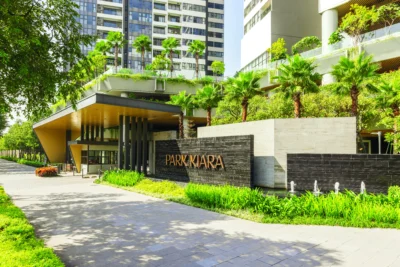Hong Kong banks offer mortgage assistance for borrowers affected by coronavirus
In hopes to avoid SARS-like foreclosures

Two Hong Kong banks announced mortgage payment relief for borrowers hit by the coronavirus epidemic, which analysts believe will reduce the number of foreclosures in a region that already has a receding economy, reported Channel News Asia.
Standard Chartered and Bank of China (Hong Kong) said mortgage customers can register to pay only the interest and not the principal amount for up to six months, with option to extend for another six months.
“This is an effort to relieve the pressure of making monthly repayments for the individual and commercial customers who are more severely affected by the novel coronavirus outbreak, including but not limited to those in retail, food and beverage, logistics, tourism, hospitality and entertainment industries,” said Bank of China (Hong Kong).
Last year, the months-long protests have already distressed the economy, leading it into its first recession in 10 years. As more travel bans to Hong Kong has been announced across several countries, analysts foresee direct blow to tourism, retail, and other industries.
More: Escalation of Wuhan virus threatens more retail sales loss in Hong Kong amid protests
The city-state’s no.2 carrier Hong Kong Airlines has revealed their plan to cut 400 jobs and operations because of the weak travel demand.
Hong Kong’s financial secretary said the virus’s impact on the economy could be worse than the SARS outbreak in 2003, leading to increase in unemployment.
With the growing number of cases, senior vice president at mReferral Mortgage Brokerage Services Eric Tso expects more banks to apply relief measures in mortgage payments to avoid the foreclosures that occurred in 2003.
On the other hand, property agents responded that the number would not surpass the 5,700 foreclosures in 2003 since the current loan ratio is much lower.
In December 2019, the mortgage delinquency ratio was recorded at 0.03 percent, with residential mortgage loans in negative equity roughly at 128.
Recommended
Park Kiara in Hanoi raises the bar for sustainable urban living
Park Kiara in Hanoi is a repudiation of low-density, car-dependent suburban sprawl
6 reasons Bekasi is rising as Greater Jakarta’s next hotspot
One of Greater Jakarta’s rising stars is prospering, thanks to ample recreation and a contingent of desirable housing projects
6 developments driving Asia’s green real estate shift
Developers are being incentivised to push a green agenda into daring new realms
The Philippines’ LIMA Estate drives sustainable industrial growth
LIMA Estate models a citywide vision that uplifts workers while appealing to climate-conscious employers






